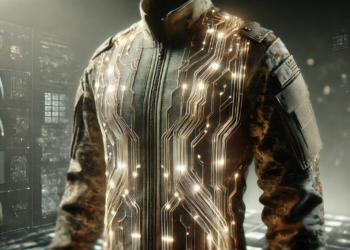As NATO navigates through the complexities of modern global security, the alliance must address its overreliance on the United States and adapt to new threats. The current geopolitical landscape, marked by Russia’s aggression in Ukraine and the rise of China, demands a robust and independent European defense strategy.
For decades, the United States has been the backbone of NATO, providing leadership, military capabilities, and a nuclear deterrent that European countries depend on. This arrangement, while effective during the post-World War II era, is now showing its limitations. With U.S. focus increasingly shifting towards the Indo-Pacific and the rising influence of China, Europe must step up and take greater responsibility for its own security.
Despite notable increases in defense spending among European NATO members, the continent’s military dependence on the United States persists. This issue is not merely about financial investment; it also reflects a fragmented approach to defense policy. European nations tend to prioritize national interests over collective security, resulting in a lack of cohesive action and inefficient defense systems.
Efforts to integrate European defense have historically faced resistance. Initiatives like the Saint-Malo declaration in 1998 aimed to create a European army but were stymied by U.S. policies designed to maintain NATO’s centrality in European defense. This long-standing dynamic has led to inefficiencies and a lack of unified action within Europe’s defense sector.
To address these challenges, NATO must promote greater European integration in defense efforts. This involves not only increasing defense spending but also improving coordination and resource allocation across European countries. The European Union should play a key role in this process, acting as an investment and procurement arm for NATO, while NATO continues to oversee military planning and operations.
The conflict in Ukraine underscores the urgent need for stronger European defense capabilities. While NATO’s support has been crucial in helping Ukraine resist Russian aggression, delays in aid have had significant consequences on the battlefield. A more integrated European defense system would ensure quicker and more efficient responses to such crises.
Looking ahead, NATO must also prepare for a range of emerging threats over the next 10 to 20 years. These include the increasing risk of cyber warfare, the proliferation of advanced missile technologies, and the potential for conflicts in space. Cybersecurity, in particular, is a critical area where NATO must enhance its capabilities. As cyber threats grow in sophistication and scale, the alliance must develop robust defenses and coordinated responses to protect critical infrastructure and maintain operational security.
Another looming threat is the proliferation of hypersonic missiles and other advanced weaponry. These technologies can bypass traditional missile defense systems and pose a significant challenge to NATO’s current defensive posture. To counter these threats, NATO must invest in research and development to advance its own missile defense capabilities and ensure it can effectively respond to these new forms of aggression.
Space is another domain that will become increasingly contested in the coming decades. As more nations develop capabilities to operate and conduct warfare in space, NATO must establish a comprehensive strategy for space defense. This includes protecting satellites that are critical for communication, navigation, and intelligence-gathering. Developing norms and agreements for responsible behavior in space will also be essential to prevent conflicts and ensure the sustainability of space operations.
The rise of artificial intelligence (AI) and autonomous systems presents both opportunities and challenges for NATO. AI can enhance decision-making, intelligence analysis, and operational efficiency, but it also introduces risks related to autonomy in weapons systems and the potential for adversaries to use AI in cyber attacks or misinformation campaigns. NATO must establish ethical guidelines and frameworks for the development and deployment of AI technologies to ensure they are used responsibly and effectively.
Strengthening NATO involves not just financial commitments but also a strategic overhaul of how defense is managed and executed. The EU can mobilize resources and standardize procurement to reduce inefficiencies and ensure interoperability among European forces. By integrating efforts across member states, Europe can develop a cohesive defense strategy capable of addressing both regional and global threats.
This shift towards greater European responsibility in defense will also alleviate the burden on the United States. Encouraging European nations to take on a larger security role will create a more balanced and resilient NATO. This approach ensures that the alliance can maintain its readiness and credibility without being overly dependent on a single member.
As NATO adapts to these future threats, it must also foster stronger partnerships with other global powers and regional organizations. Collaborating with countries in the Indo-Pacific region, for example, can enhance NATO’s ability to address security challenges that transcend geographic boundaries. Building a network of alliances and partnerships will be crucial for sharing intelligence, conducting joint operations, and promoting stability in key regions around the world.
NATO’s future hinges on its ability to adapt to new realities and challenges. By fostering a stronger and more independent European defense framework, NATO can enhance its collective security and deter aggression more effectively. This transformation is crucial for the alliance to meet the threats of tomorrow and uphold the principles of collective defense that have been its foundation for decades.








